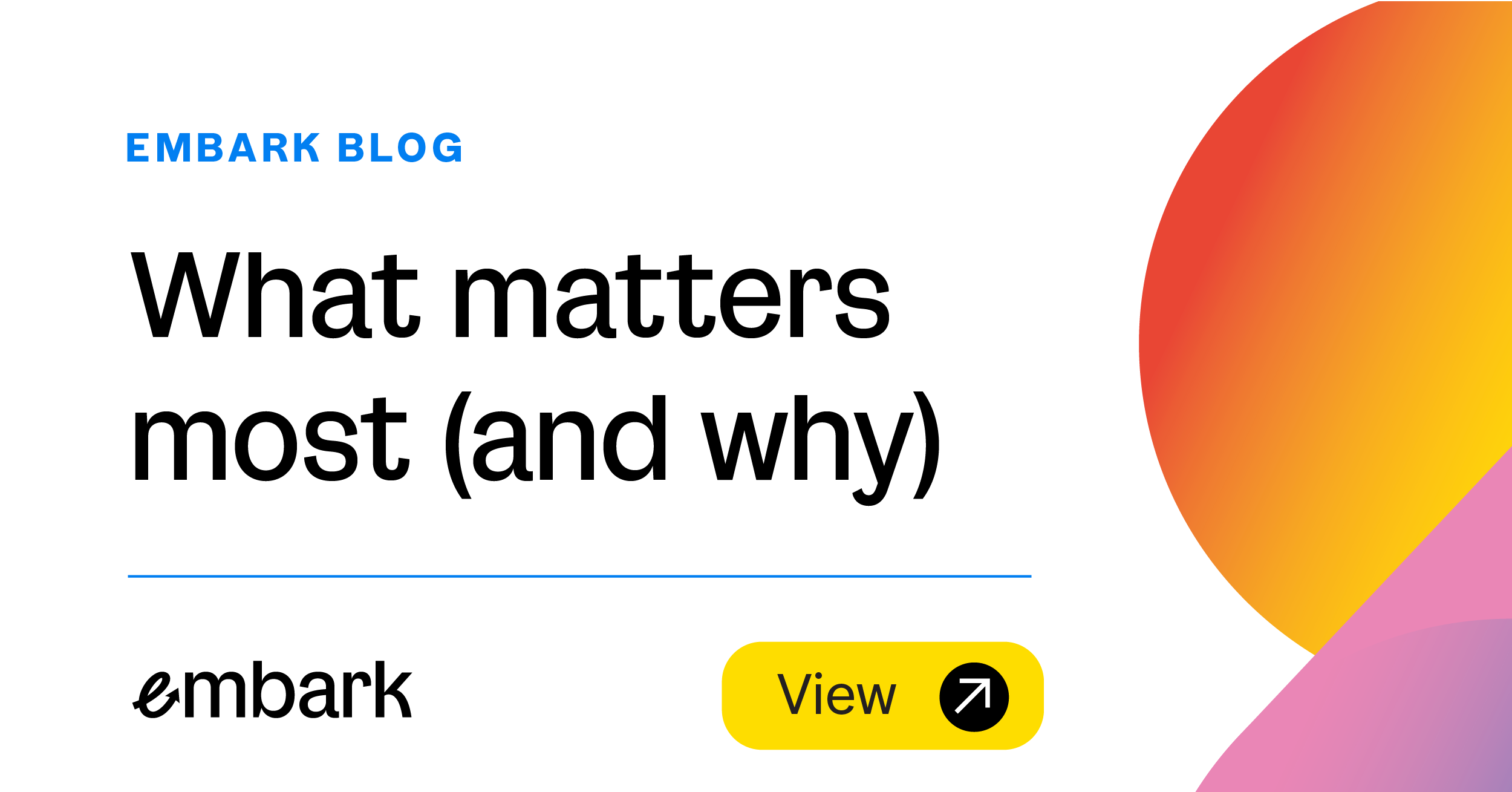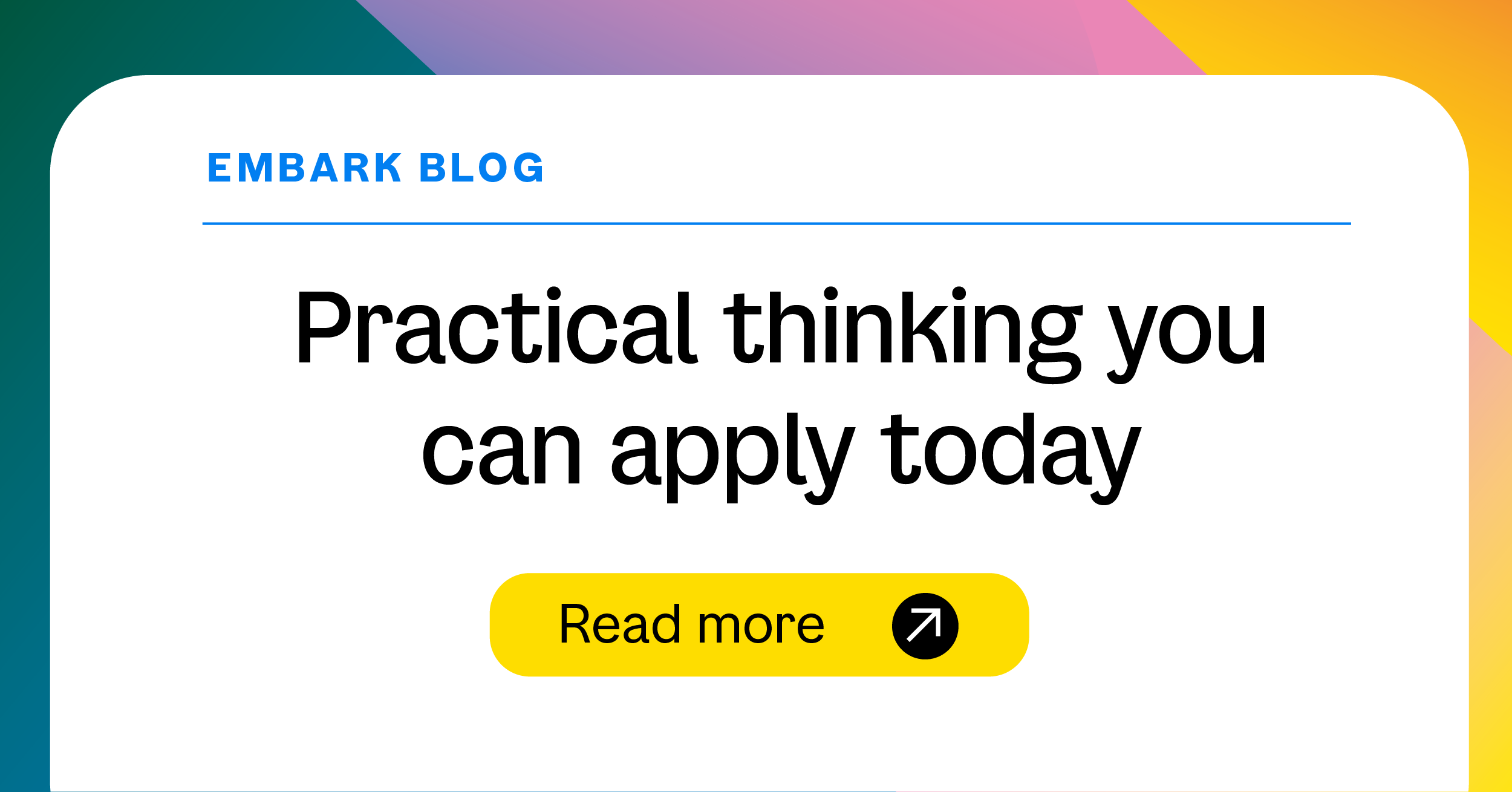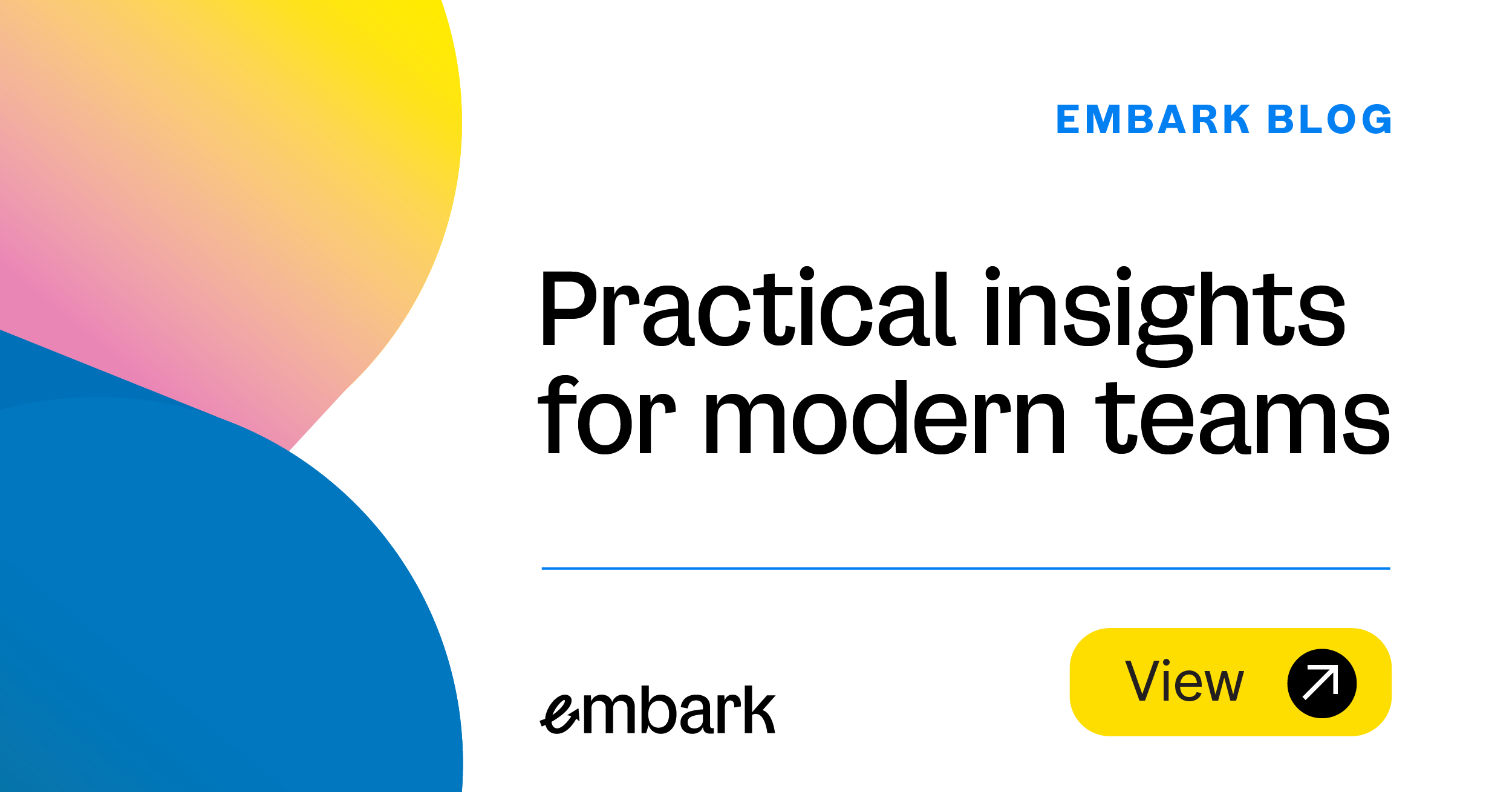
Updated June 2023
Think of your organization’s data as a massive gold vein buried directly beneath your headquarters. It’s just sitting there, waiting for you to start creating real value and distancing your enterprise from the pack.
But that’s the rub with data – and gold, for that matter. Fully leveraging business intelligence doesn’t happen on its own, just like gold won’t jump out of the ground and onto your balance sheet by itself.
So what’s a well-intentioned but analytics-challenged business to do when it wants to tap into all of that prescient, insightful data just waiting there, ripe for the picking? As we’re about to explain, establishing a data culture is a great place to start, creating a data-centric mentality across your enterprise that propels every facet of your business forward.
What Is Data Culture?
Data culture definitely isn’t your grandpappy’s take on how an organization should think, act, and plan. It’s an immersive, data-driven perspective that usually requires a fundamental, almost elemental shift in how an enterprise looks at, interprets, and utilizes data to answer questions, derive insights, and solve challenges.
Simply put, in this era of big data, a robust data culture means your organization puts data at the very center of its decision-making. It’s not a movement, a trend, or a New Age-sounding fad that will eventually dissipate like so many others. Rather, data culture should saturate every level and every role of your organization.
Remember those business leaders you encountered in the early days of your career, the ones that relied on instinct and a gut feeling to make crucial decisions? Well, those don’t really exist in a company with a healthy data culture. Instead, a data-driven enterprise relies on concrete, accurate, timely information to reveal insights people use to guide their decision-making.
Data vs. Hierarchical vs. Consensus Cultures: What’s the Difference?
To flesh out the concept a bit more, let’s compare data cultures to the more common – at least for now – hierarchical and consensus cultures. In hierarchical culture, everything flows top-down. The C-suite, big cheese, ivory tower – whatever you want to call it, it’s the highest level of an organization and the sole source of decision-making. What the head honchos say, goes.
Alternatively, consensus culture reigns supreme when everyone has a say and vote in a decision. While consensus might look nice on paper, it can be a nightmare in reality, where it only takes a single person to grind progress to a screeching halt.
Obviously, both hierarchical and consensus cultures have massive drawbacks. With the former, your people feel out of the loop, unimportant, and likely hesitant to innovate, while the latter stretches corporate democracy beyond its natural limits. Fortunately, data culture uses an entirely different approach than either, one that’s distinctly built for the inevitable data-driven marketplace.
The Three Pillars of Data Culture
Rather than decision-making by one or by all, data culture relies on relevant, insightful business information to inform and guide choices. And it accomplishes all of this through the three pillars that support any transformational change in an organization – people, processes, and technology.
- People: They understand the importance of data and use it to identify issues within the enterprise
- Processes: The collective course of action used to address and solve the business problems identified by your people
- Technology: The tools you use to put that course of action into motion
In effect, data culture operates as a bridge between problems and solutions, where your people either:
- Recognize issues and know where to go to solve them, or;
- Can formulate the most effective decision-making processes on their own and, with the necessary technology, access the right data, transform it, and manipulate it to solve the underlying issue
This is where a center of excellence (COE) adds so much value to the equation, acting as a hub of sorts where, after recognizing a problem, your people can either:
- Send it to the COE for resolution, or
- Join the COE – full or part-time – and become part of the solution process
At its core, the COE consists of the most informed and capable of your people – the power users. That said, everyone in your organization plays a role in both the COE and your enterprise’s success since data literacy serves as table stakes in data culture.
In that sense, all it takes is a handful of people to drag their heels – sometimes just one – to become the proverbial weakest link and severely impede your organization’s growth and success.
But on the flip-side of that, with a healthy data culture and fully-functioning COE, it doesn’t matter what a problem might be or who it involves because it always comes down to the same solution process and questions:
What does the information say? How can we inform this decision outside of what’s in our noggins?
Ultimately, a data culture facilitates strategic discussions and better decision-making, rooted in unbiased, accurate, and relevant metrics and data points.
Why Is Data Culture Important?
We’re not being overly dramatic by saying data and an enterprise’s ability to harness and transform it – at all levels – will separate the winners from the losers down the road. That is, if it’s not already.
In fact, according to recent thoughts from MIT’s CDO (Chief Data Officer), companies with a robust data culture realize:
- Increased revenue
- Better customer service
- Industry-leading operating efficiencies
- Improved profitability
Sounds pretty great, right? Unfortunately, over 40% of companies still struggle to use data in their decision-making, and a scant 20% use data-driven decisions all the way to their frontline workers.
So what gives? If the effective use of data creates such a competitive advantage for a company, why aren’t more hiring data scientists, data analysts, and doing everything they can to embrace data science? To distinguish themselves as a genuinely data-driven organization? Those are questions best answered by looking at the building blocks you need to develop and maintain a data culture.
What Are the Keys to a Data Culture?
Now that we know what data culture is and why it’s so important, let’s look at some of those building blocks you’ll need to develop one.
Buy-In and Trust from Leadership
Remember when we spoke about hierarchical culture? When moving from this model to a data-driven one, stakeholders and decision-makers must get accustomed to using technology and analytics to drive their critical thinking rather than gut instinct.
Likewise, they’ll need to trust their people enough to empower them with the data necessary to inform decisions, all while having faith these people are indeed making the right decisions.
Attract and Retain Talent
Although technology now makes data-driven decision-making intuitive, in many cases, there will still be people uncomfortable with a culture focused on data usage and a data-centric mentality.
Therefore, you must attract and retain the type of talent that will flourish in a data culture. This process should begin at the earliest stages of recruitment and continue throughout an employee’s tenure with your enterprise.
Once again, data literacy functions as table stakes, where everyone in the organization must know how to recognize problems requiring data as well as opportunities that can leverage it.
Therefore, if you don’t have people open to changing the way they solve problems, your data culture is bound to take on water fast. Fortunately, in our experience, this type of situation is very much the exception and not the rule, where most people are not only willing to improve their data literacy, but are eager to.
Committed People
As we said, you’ll need to attract the right talent to drive your data culture. But what do you do with your existing employee base?
- Emphasize that change isn’t bad, and this transformation toward a digitally-driven enterprise isn’t a long con to give their jobs to heartless robots. Remember, people are willing to endure change, so long as the benefits on the backend outweigh the costs of getting there.
- Develop ways to inspire your workforce to upskill and embrace this new culture. If everyone isn’t committed to a data culture and the requisite know-how, it flat-out won’t work.
Sharing (Is Caring)
It’s not like you’ll announce your commitment to this new data culture and have everyone running at full speed the next day. It takes time for it to take root and grow, so going for smaller wins and celebrating early successes will be essential.
In other words, sharing those successful use cases throughout your organization will help drive home how important the initiative is and, just as importantly, that your enterprise is heading in the right direction. At no point do you want data culture to seem like the impossible dream.
A New State of Mind
As we said up top, data cultures require a different perspective and mindset than your people are probably used to. So chances are, they’re going to experience some hurdles and frustrations along the way.
That’s why it’s so important to nurture this new state of mind across your enterprise. From the top on down, make sure you emphasize business intelligence and use data-driven decisions throughout your operations. Before long, data culture will be the norm and not the unfamiliar new kid on the block.
How Do You Build a Data Culture?
Now that the building blocks are in place, it’s time to start using them to develop your data culture. While every organization is different, a few best practices are nearly universal, so let’s begin with them
Get Everyone on the Same Wavelength
Yes, this includes the leadership buy-in we already mentioned, but it goes far beyond that. Any organizational culture – data or otherwise – depends on your people committing to a shared vision and overarching set of beliefs and values.
Therefore, anything you can do to foster that dynamic and get everyone on the same wavelength only bolsters your data culture. In some cases, even the layout of your office space can impact how effectively you reshape perspectives and behaviors.
For example, if you’re trying to develop a data-driven culture in your accounting department, do you think it’s a good idea to sequester each team member into their own claustrophobic cubicle? Probably not.
In this instance, communication silos are just as toxic as data silos and, in many ways, come part and parcel with each other. Isolating your team members makes it impossible to create a communication structure that fosters innovative thought, collaboration, and the ability to elevate data issues.
While this is only one example, these are the types of nuanced decisions that could very well be the difference between your data culture flourishing or languishing, so fine-tuning your change management skills is probably time well spent.
One Size Doesn’t Fit All
Every person, team, and department in your enterprise is different. Folks in marketing will have different skillsets and innate strengths than their counterparts in HR or finance. Therefore, you shouldn’t hesitate to use data strategies and roll-outs customized for specific groups or departments.
Put another way, if your HR team isn’t as strong with advanced analytics as finance, focus your HR training on beefing up those analytic skills and data literacy, at least as they pertain to their specific roles. One size doesn’t fit all when developing a data culture, so training under that misconception falls squarely within the fool’s errand category of mistakes.
Use the Right Technology
From data repositories and dashboards to RPA and other automated wonders, we’re smack dab in the middle of a digitally-driven business revolution for decision-making. And while that’s undoubtedly great, technology is only as good as it aligns with your specific needs.
Thus, your data culture won’t be nearly as strong as it could be if you arm your people with the wrong tools. That’s why we suggest starting at the foundational level and working your way up, answering some specific questions as you go:
- Can your current business processes support data analysis and true data analytics?
- Can your data architecture handle significantly more data end-users?
- Will your current architecture let you scale and adapt to a developing data culture?
- Does your data infrastructure provide data access your business information quickly and easily?
- Have you prioritized financial data management and combined multiple data sources?
If you answered ‘no’ to any of these, it’s probably best to hit pause for a moment and either have your in-house IT specialists address the issues or use an experienced outside third party. If you don’t, you’re building your data culture on seriously shaky ground. And that’s not good.
Does My Company Have a Strong Data Culture?
If, after reading everything we’ve discussed to this point, you’re still unsure of your data culture’s strength, there’s a good chance you have quite a bit of work ahead of you.
Sure, that might be frustrating to hear, but it’s certainly not uncommon. According to recent research, while 83% of CEOs want their enterprises to be data-driven, a mere 30% actually use data to drive their decision-making.
Thus, if you happen to fall into this category, we suggest revisiting the three essential pillars we began with:
- People: Are your people capable of both embracing and flourishing within a data culture? Are you recruiting with an eye toward data-driven abilities? If not, then it’s time to sit down with HR and look at your training, hiring, and evaluation processes.
- Processes: Do you have reliable, repeatable data procedures in place that let you effectively collect, store, manipulate, and manage your business information? Do you have internal policies to promote these abilities? And the data governance to guide and lead them?
- Technology: Do you have the tools – both hardware and software – to collect, store, manipulate, and manage your data sets? How well do your current systems integrate with your data infrastructure?
Your answers to these different questions will give you a general idea of where you are and what you need to do to establish the data culture of your dreams. However, don’t forget that Rome wasn’t built in a day, so developing an entirely new culture requires time, effort, and expertise. Just don’t skimp on any of these. Otherwise, you’re just making the job much more difficult.
What Are the Risks to a Data Culture?
Finally, any discussion on the risks of a data culture should focus on the consequences of not implementing one. Because, honestly, there’s simply no downside to establishing a comprehensive, enveloping culture that puts accurate, timely data at the center of all decision-making.
Therefore, the risks surrounding data culture involve waiting too long to establish one or simply not developing one at all. Simply put – without an ounce of doubt, this is the future. The perpetual march of technology and all things data isn’t going to stop. They have no endpoint.
For your enterprise, it comes down to what is essentially a fight or flight response. Do you evolve with innovation and the market? Or do you go the way of the Triceratops? Granted, while that extinction event might not happen today or tomorrow, it’s probably closer on the horizon than you might think.
As foreboding as that might sound, though, there’s absolutely a silver lining to all of this – you’re not in it alone. In fact, our data team and transformation gurus at Embark exist to help companies develop the data culture they need to effectively compete. And as far as we can tell, there’s no time like the present to kickstart your data-driven future. So let’s get going.






